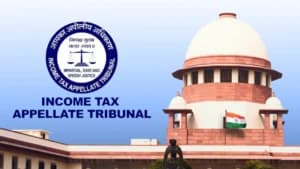The Supreme Court of India, in a significant ruling on February 12, 2025, criticized an insurance policy clause that restricted vehicle accident claims to only those incidents occurring within the insured’s premises. The Court deemed such a condition as "absurd" and held that it was unreasonable for an insurance company to reject claims on this basis.
Case Background
The case involved M/S Tarapore and Co., the appellant, which had purchased a Tata Hitachi Heavy Duty Crane. The company insured the crane through United India Insurance Company, which periodically renewed the policy. The crane was regularly used at Tata Steel’s Jamshedpur complex for construction purposes.
On June 14, 2007, while lifting materials at Tata Steel’s powerhouse, the crane's boom collapsed, causing severe damage. The appellant undertook repair work and later filed a claim under the insurance policy. However, after two years of inaction, the insurance company refused the claim, stating that the accident did not occur within the insured’s premises as per the policy’s conditions. The appellant’s challenge was initially dismissed by both the Commercial Court and the High Court, prompting an appeal to the Supreme Court.
Read Also:- National Permit Remains Valid If Vehicle Is Within Its Registered State: Supreme Court
The Supreme Court, while reviewing the case, noted that neither party had previously highlighted this restrictive condition. The bench of Justices J.B. Pardiwala and R. Mahadevan strongly criticized the insurance company for imposing such an illogical limitation:
"The understanding of the Insurance Company is that it is only in the event of the accident occurring within the premises i.e., the place mentioned in the insurance policy, that the claim is liable to be sanctioned. Prima facie, it appears that neither of the parties paid attention to such an absurd condition."
The Court further emphasized that cranes are used at construction sites, not within office premises. It pointed out that both the insured and the insurance company failed to recognize this impractical condition at the time of the policy’s issuance and renewal.
The judgment also criticized the delay in claim processing. The Court noted that while there was no dispute regarding the accident, the damage caused, or the claim’s validity, the insurance company took an unreasonably long time to reject the claim based on a technicality:
"There is no dispute as regards the accident. There is no dispute as regards the damage caused due to the accident. There is no dispute even as regards the quantum of damage. To that extent, it took quite a long time before the Insurance Company itself realized that they cannot sanction the claim because the accident did not occur at the address shown in the insurance policy."
In the interest of justice, the Court urged the insurance company to consider a fair settlement. After discussions, United India Insurance agreed to pay an amount of Rs.40 lakh, not exceeding Rs.45 lakh, including applicable taxes. The Court instructed the insurer to disburse the payment within six weeks and disposed of the appeal.
"Today, when the matter was taken up for further hearing, the learned counsel appearing for the Insurance Company submitted that the company is ready and willing to pay an amount of Rs.40 lakh plus applicable taxes but not exceeding Rs.45 lakh."
This ruling sets a significant precedent in insurance claim disputes. It highlights the importance of fair policy interpretation and prevents insurance companies from imposing impractical conditions to deny claims. It also serves as a reminder for policyholders to thoroughly review their insurance terms and ensure that conditions are reasonable and applicable to real-world scenarios.
The Supreme Court's decision reinforces the principle that insurance policies should be drafted and enforced in a manner that serves their fundamental purpose – providing financial protection in case of unforeseen events, rather than being used as a tool to deny legitimate claims on technical grounds.
Case Name: M/S TARAPORE AND CO v. UNITED INDIA INSURANCE COMPANY LIMITED., CIVIL APPEAL NO.2387 OF 2025















